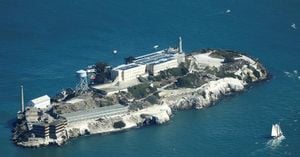A new breakthrough in quantum computing has been achieved with the development of the Re-locative Guided Search optimized self-sparse attention-enabled deep learning decoder for quantum error correction, known as RlGS2-DCNTM. By integrating innovative techniques from deep learning, this model addresses the pressing issues of error correction within quantum systems, paving the way for enhanced efficiency and accuracy.
Quantum computing is on the verge of revolutionizing industries worldwide through its unique capability to process information faster than classical computers. Central to the advancement of quantum technology is the ability to maintain the integrity of quantum information, particularly through the application of quantum error correction (QEC) techniques. Traditional QEC methods have faced significant challenges, including high model complexity and the inability to correct errors effectively under real-world quantum conditions.
The RlGS2-DCNTM model surmounts these challenges by employing self-sparse attention mechanisms integrated with the Re-locative Guided Search (RIGS) algorithm, drastically improving the model's ability to extract features from quantum codes. Self-sparse attention augments the model's focus on the most informative areas of the input data, which is pivotal when decoding quantum states prone to noise and errors. According to the authors of the article, "the self-sparse attention mechanism integrates feature learning for more effective error decoding.” This method allows the model to retain significant features and ignore irrelevant information, thereby enhancing its robustness.
To optimize the hyperparameters of the model, the RIGS algorithm mimics biological behaviors related to hunting and foraging. This nature-inspired optimization technique is particularly beneficial for avoiding premature convergence, allowing the model to explore the search space more adeptly. The authors state, "by utilizing RIGS, we optimize processes avoiding local optima and enhancing convergence speed.”
When assessed against existing frameworks, the RlGS2-DCNTM model demonstrated noteworthy performance improvements, achieving a Minimum Mean Squared Error (MSE) of 4.26, a Root Mean Squared Error (RMSE) of 2.06, Mean Absolute Error (MAE) of 1.14, and maximum correlation (R²) values reaching 0.96. These metrics reveal the model's exceptional aptitude for performing real-time error decoding tasks, providing immense potential for practical quantum computing applications.
With the capacity to minimize the detrimental effects of error through efficient decoding, this research sets the stage for the application of deep learning strategies to quantum error correction. The innovative RlGS2-DCNTM model stands at the forefront of this evolution, offering pathways toward scalable and resilient quantum computing systems. Such advancements not only signify progress within the quantum domain but also herald new opportunities for leveraging quantum technologies across diverse fields, including cryptography, logistics, finance, and more.
Overall, the proposals stemming from this research advocate for integrating intelligent deep learning methodologies with quantum error correction, enhancing the feasibility and reliability of quantum computers. Future directions may explore the adaptation of reinforcement learning frameworks to develop hybrid decoders capable of sustained error correction under increasingly complex quantum conditions.



